Benefits
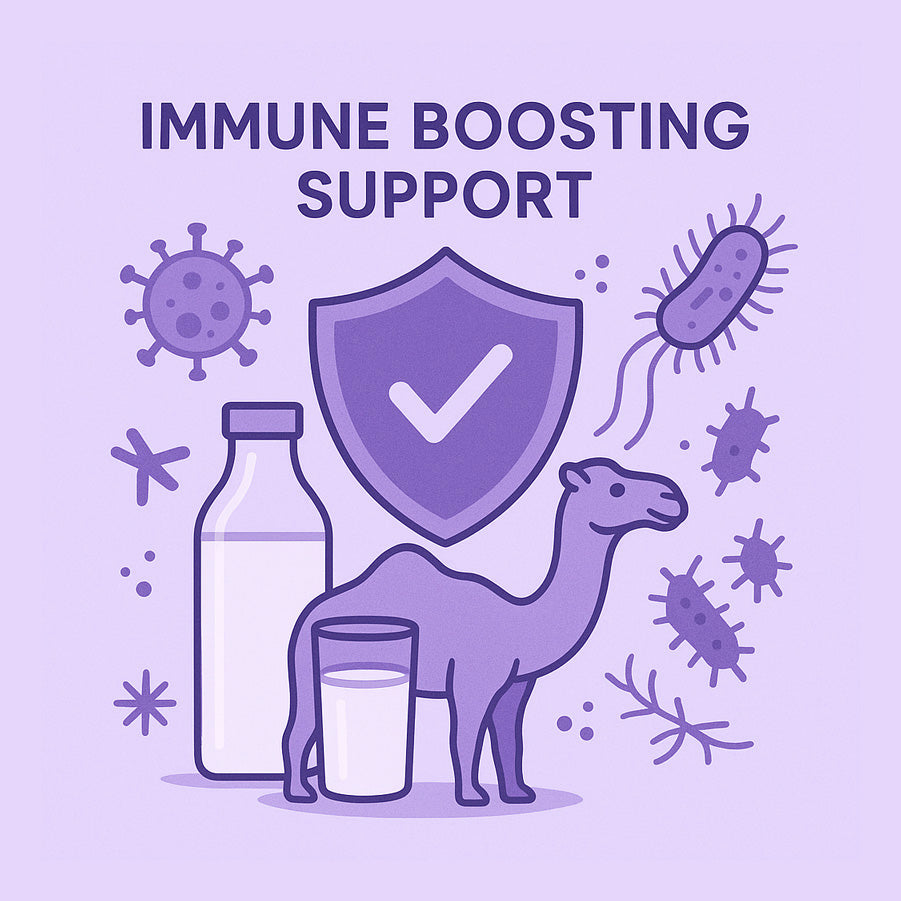
IMMUNE BOOSTING SUPPORT
Camel milk contains a form of unique, powerful immune active components not found in cow or goat milk. These immunoglobulins and lactoferrins appear to fight various disease-causing organisms. Known as nanobodies, the immunoglobulins are smaller than human immunoglobulins and can easily pass into human tissues to be utilized.A number of studies on camel milk lactoferrin has shown that it has anti-viral, anti-bacterial, anti-fungal and anti-inflammatory properties. Lactoferrin inhibits the growth of bacteria, such as Escherichia coli, Klebsiella Pneumoniae, Clostridium, H. Pylori, Staphylococcus Aureus, and the yeast Candida Albicans.Camel milk also contains beneficial enzymes like lysozyme and lactoperoxidase which are helpful to the body in fighting infection.
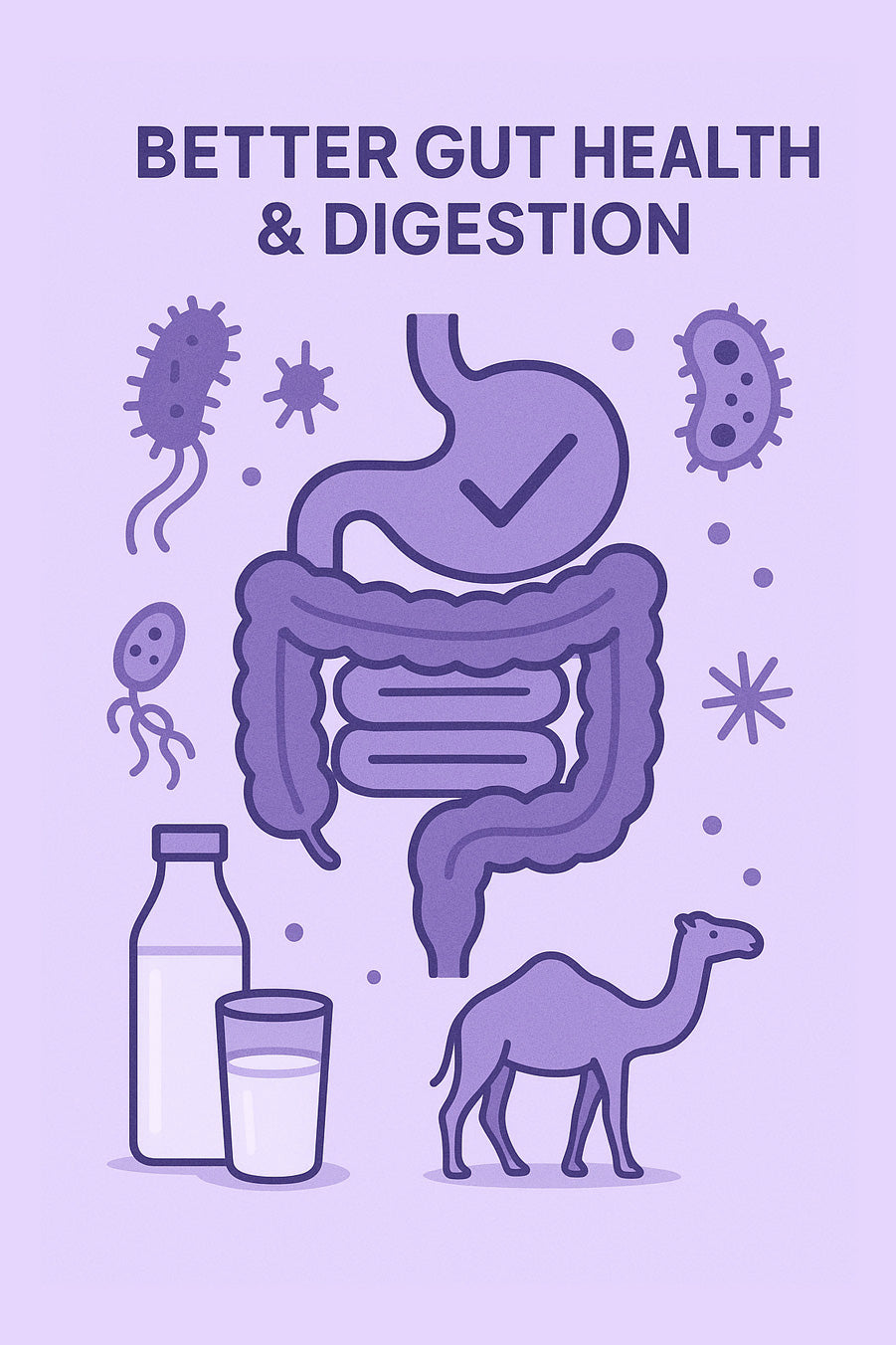
BETTER GUT HEALTH & DIGESTION
The gut microbiome (a community of microorganisms, including bacteria) plays a very important role in your health by helping control digestion and benefiting the immune system and many other aspects of health.
An imbalance of gut microbiome in the intestines may contribute to health disorders such as weight gain, high blood sugar and high cholesterol.
Many compounds found in camel milk benefit the good bacteria in the gut because they provide a broad spectrum of beneficial probiotics, and prebiotics in the form of oligosaccharides. Oligosaccharides contribute to digestive health by decreasing gut permeability and supporting a healthy microbiome.
Colostrum is very nutritious and contains high levels of proteins that fight infections and bacteria. Camel milk is virtually bio-identical to the colostrum in human milk and stimulates the same properties as colostrum, making it highly beneficial and easy to digest.
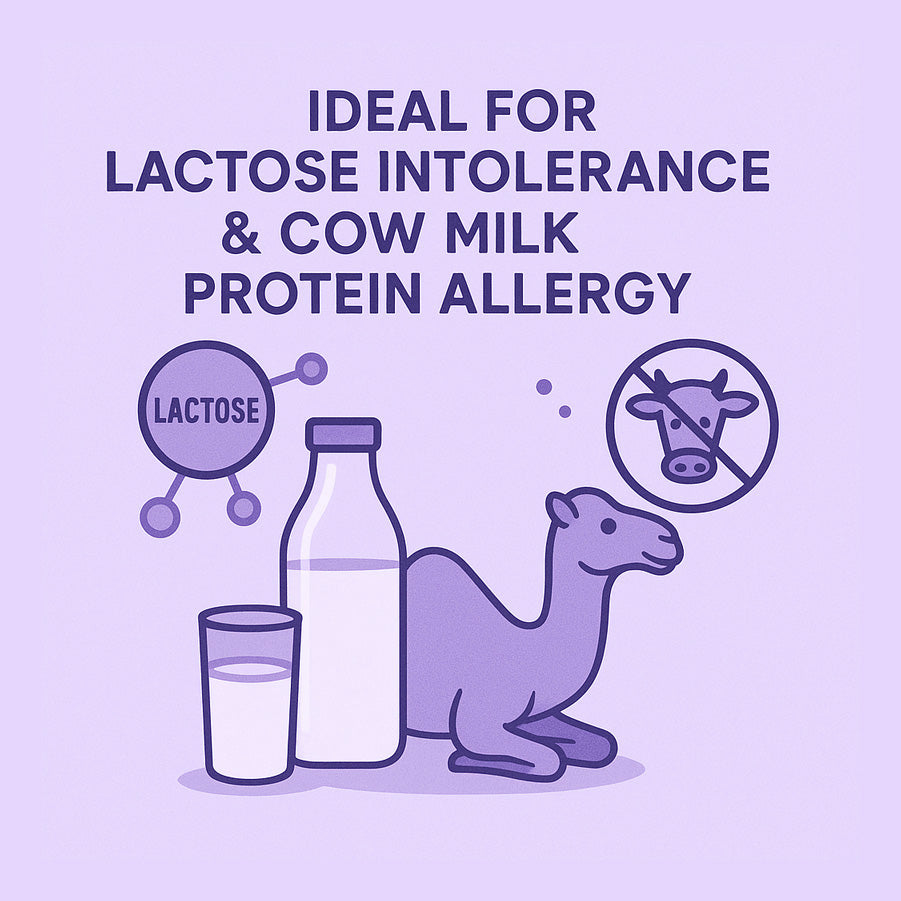
IDEAL FOR LACTOSE INTOLERANCE & COW MILK PROTEIN ALLERGY
Camel milk contains less lactose than cow milk and therefore is usually very well tolerated by people who are lactose intolerant.
Camel milk does not contain A1 beta-casein and beta-lactoglobulin, two of the most allergenic proteins contained in cow milk that can cause an allergic reaction. This means camel milk can be enjoyed by people who don’t do well with cow milk or who are on an A1 beta-casein-free diet.
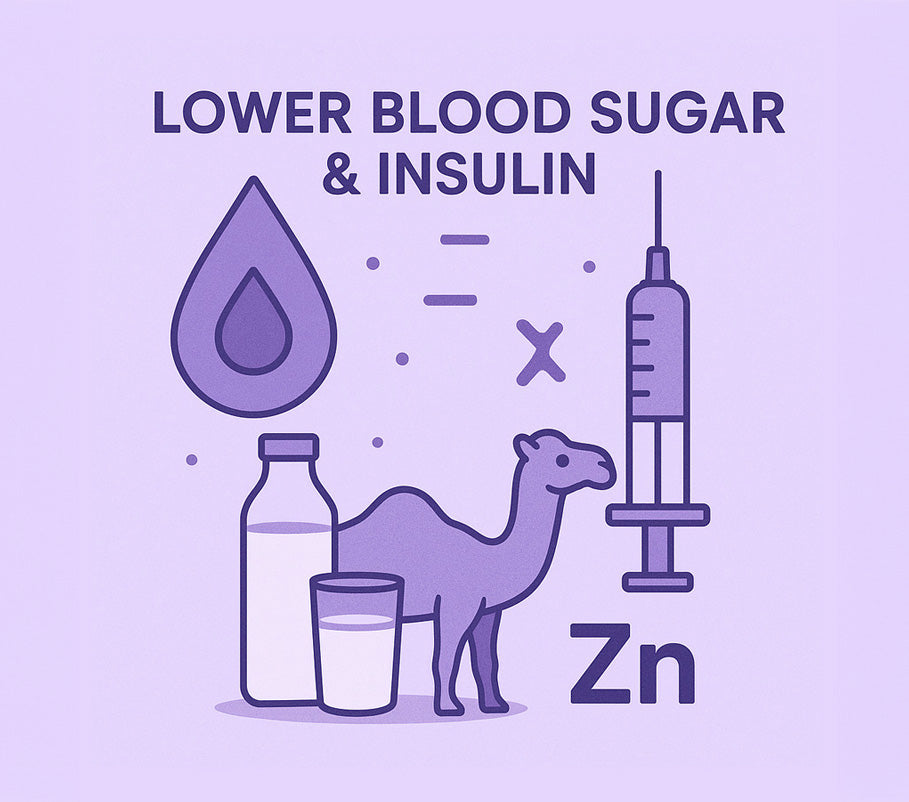
LOWER BLOOD SUGAR & INSULIN
Camel milk contains insulin-like proteins and has been shown to lower blood sugar and increase insulin sensitivity. These insulin-like proteins have a unique property that protects them from the digestive enzymes in the human stomach, making them more available to the body. This means they are better absorbed. Camel milk is also high in zinc, which may also help improve insulin sensitivity.
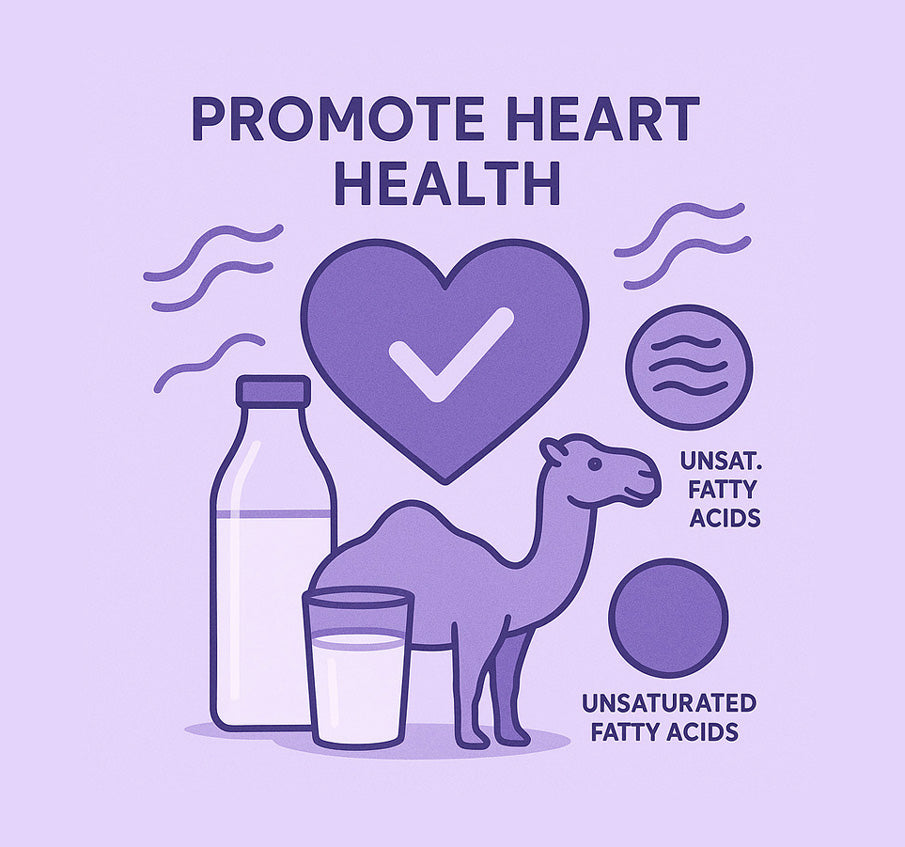
PROMOTE HEART HEALTH
Camel milk is naturally lower in fat (only 2-3%), about 50% lower than cow milk. The fats in camel milk are turned into the smooth, creamy texture by naturally occurring Omega 3 fatty acids. The high percentage of unsaturated fatty acids can help with blood pressure regulation and healthy cardiovascular functioning.
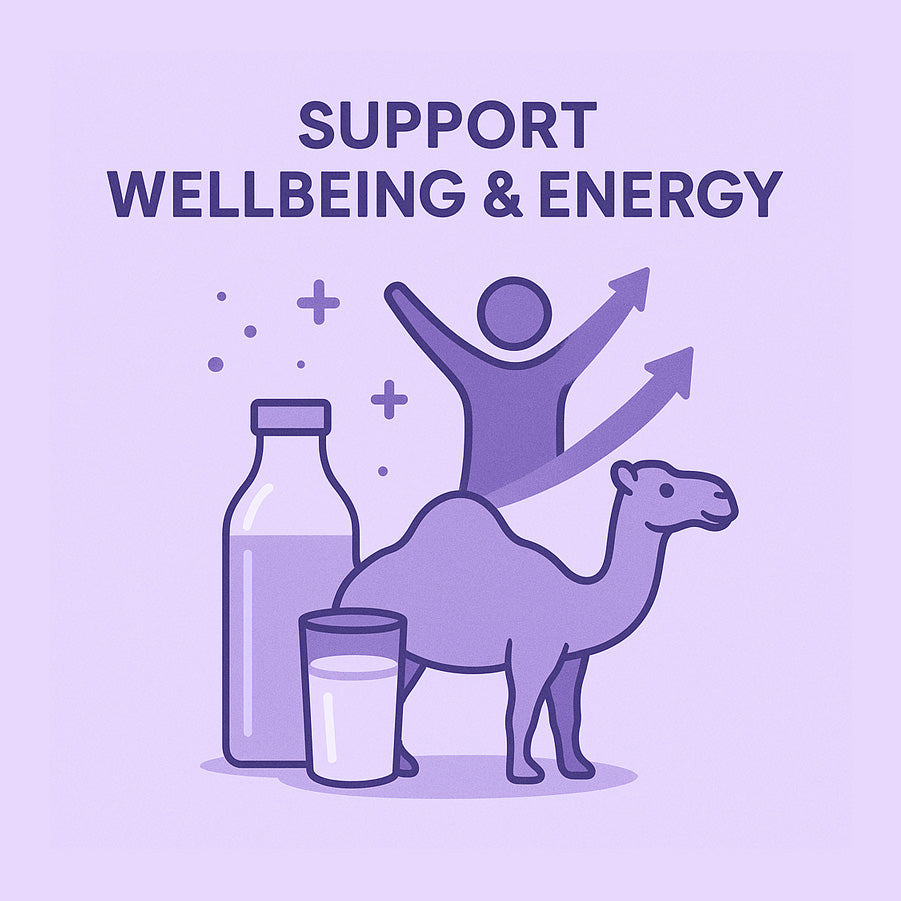
SUPPORT WELLBEING & ENERGY
The impressive nutritional goodness of camel milk can help people who want to feel healthier and have a greater sense of wellbeing.
Many people drinking camel milk experience more sustained energy during the day. Some people use it before exercise to build stamina or after physical activity to help provide the body with more nutrition for recovery and repair.
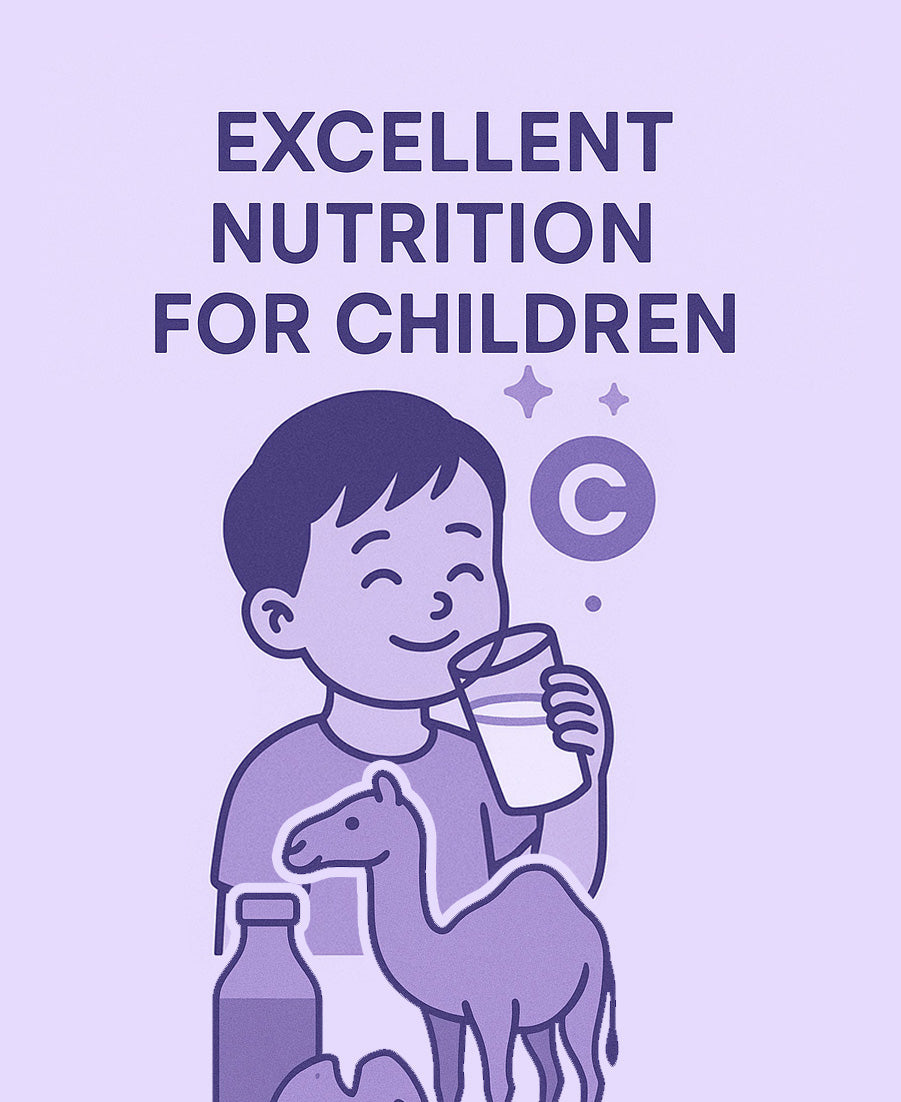
EXCELLENT NUTRITION FOR CHILDREN
Growing children need good nutrition every day. Camel milk has a protein, carbohydrate and calorie content comparable to whole cow milk, but it also has some big nutritional advantages. Camel milk has more calcium than other milks and beneficial levels of bioavailable minerals – selenium, zinc, potassium, magnesium, copper, iron and other minerals. It also has 3 to 5 times more Vitamin C. The higher level of certain amino acids (such as methionine, valine, and leucine) found in camel milk as compared with cow milk, can help stimulate proper growth and development.
The results of recent studies of camel milk indicate that camel milk therapy over the course of 4 weeks of therapy, significantly improved clinical measurements of cognition and social communication in the children involved in the studies.

SKIN AND BEAUTY BENEFITS
Camel milk contains essential fatty acids, including Omega 3, Omega 6 and Omega 9 oils. It also contains Alpha Hydroxy Acids (AHAs) that help stimulate collagen production. In addition, it has many vitamins and minerals, including Vitamins A, B, C, D and E, zinc, magnesium, phosphorus, calcium, selenium and iron.
These nutrients can improve the hydration, texture, tone and elasticity of your skin, as well as help minimize blemishes, lessen wrinkles and provide anti-aging support.
